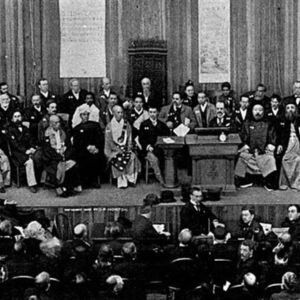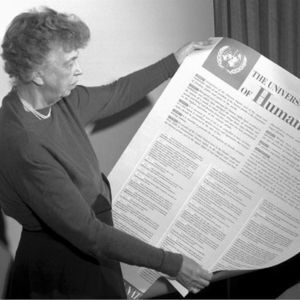Golden Rule Chronology
This adapted chronological history of the Golden Rule, authored by Rev. Dr. Harry Gensler S.J., is used here with permission. A professor of philosophy at John Carroll University in Cleveland, Ohio (USA), Gensler is one of the top Golden Rule scholars in the world. He has been writing and researching in the Golden Rule field for 45 years.
The concept of the Golden Rule provides a moral compass for individuals, communities, and societies to navigate the complexities of human interactions. It fosters empathy, respect, and compassion, and contributes to the creation of a more harmonious and just world. Its universal importance lies in its ability to transcend differences and offer a common moral framework that can guide individuals from diverse backgrounds towards ethical and compassionate behavior.
Here are some reasons why the Golden Rule holds universal significance:
Ethical Foundation: The Golden Rule serves as a foundational principle for ethical conduct. It provides a guiding framework for individuals to consider the impact of their actions on others and encourages them to act with kindness, empathy, and fairness. It promotes mutual respect and dignity in human interactions.
Cross-Cultural Value: The Golden Rule is found in various cultures and religions around the world. It reflects the shared value of treating others with compassion and respect, regardless of differences in beliefs, backgrounds, or circumstances. It serves as a common ground for fostering understanding and building harmonious relationships across diverse communities.
Empathy and Perspective-Taking: The Golden Rule promotes the development of empathy and perspective-taking by encouraging individuals to consider how they would feel in a particular situation, it fosters empathy towards others and helps bridge the gap between different perspectives. It nurtures understanding, compassion, and the ability to see beyond one's own self-interest.
Reciprocity and Mutual Benefit: The Golden Rule emphasizes the principle of reciprocity and recognizes that treating others well often leads to mutual benefit. By acting in accordance with the Golden Rule, individuals contribute to the creation of a positive and supportive social environment. When everyone adheres to this principle, it can lead to improved relationships, cooperation, and a more harmonious society.
Universal Application: The Golden Rule's applicability extends beyond personal relationships. It can guide decision-making in various domains, including politics, business, and social justice. By considering the impact of policies and actions on others, decision-makers can strive for fairness, justice, and inclusive practices.
Interconnectedness and Global Challenges: In today's interconnected world, global challenges require collective action and a sense of shared responsibility. The Golden Rule reminds us that our actions have consequences beyond ourselves and encourages us to consider the well-being of others, both locally and globally. It promotes a sense of global citizenship and the recognition of our interconnectedness as members of a global community.













